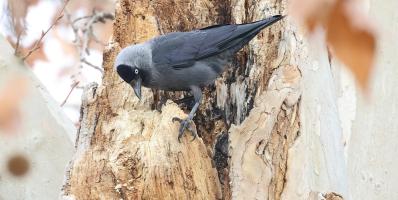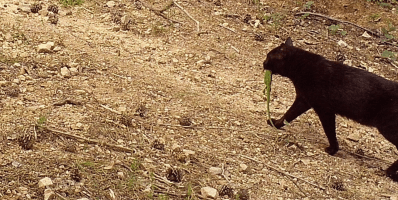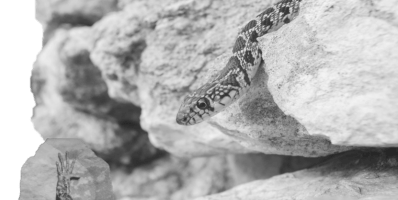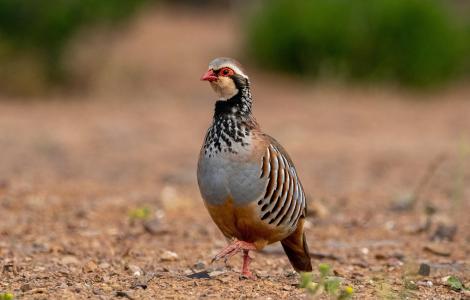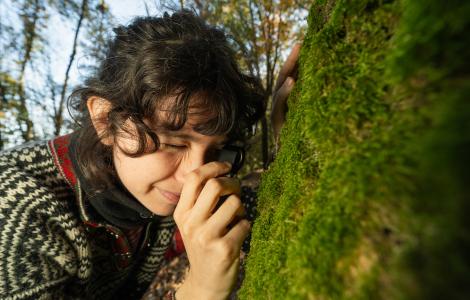Biodiversity
What is biodiversity? Why do we need to conserve native species? What do we lose if we don't stop the extinction of species? We conduct research to improve policies and management practices that aim to conserve biodiversity. At CREAF we study the mechanisms that generate and maintain biodiversity in terrestrial ecosystems. We analyze how species are distributed throughout the territory and how invasive exotic species, land use change or pollution endanger the conservation of biodiversity, especially that of the Mediterranean area.
We work with species and communities of plants and animals, approaching studies both from molecular scales and from the entire ecosystem.
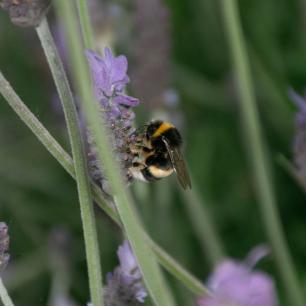
Focus areas
- Behavior, ecology and evolution
- Population and community dynamics
- Evolutionary ecology
- Species distribution and phenology
- Ecological networks and species interactions
Behavior is one of the main ways that animals interact with their environment, and to a large degree determines how they use resources and interact with other organisms. Due to its plasticity, behavior is also one of the most important mechanisms by which animals respond to environmental change. Through exploration and learning, animals are able to solve problems they have never or rarely experienced before. The environment also shapes behavior by selecting those behavioral types which work best.
Even more intriguing, behavior can even influence the speed of evolution by exposing individuals to new selective pressures. Therefore, studying how animals behave and the decisions that they make is key for understanding wide-ranging aspects of their ecology and evolution. Despite this, our knowledge of how behavior can affect the ecology and evolution of animals is still insufficient. Understanding this role is fundamental for finding solutions which mitigate contemporary losses of biodiversity and associated ecosystems services as a result of human activities.
The main lines of work and experience of CREAF in this field include:
- We parameterize animal behavior: We quantify and model animal behavior using computational and analytical methods in order to quantify animal behavior.
- Movement ecology: We study how interactions between the surroundings (environmental variables) and the internal state of animals (cognitive, physiological) modulate motor behavior and movement patterns.
- Stochasticity in behavior and searching strategies: We are interested in understanding if the sources of behavior and their variability (stochasticity) can eliminate cognitive biases or increase the success of exploration processes.
- Habitat selection and population dynamics: We are interested in how the decisions of individuals about where they live and how they use resources affect the persistence and expansion of populations.
- Behavioral responses and environmental changes induced by human activity: We study how behavior makes animals more or less tolerant to alterations of their surroundings (including urbanization, habitat fragmentation, and the presence of humans).
- Behavioral flexibility and speed of evolution: We study how behavioral changes affect the speed of evolutionary diversification.
- Foraging behavior of pollinating insects: We study how the inclusion of different parameters related with the foraging behavior of pollinators affects the structure of pollination networks.
- Behavior of seed predators/dispersers: We study which behavioral factors are important for balancing predation and dispersion of plant seeds in rodents and granivorous insects.
- Human nutrient cycles and nutrition: We study nutritional behavior of the human population in terms of nutrients and their cycles.
- Genetics and behavior: We study how genetic differences on the individual level modulate behavior.
What have we done?
Studying the demographic changes of populations and communities influencing environmental changes is a fundamental axis of basic and applied research in the field of ecology. The current challenges posed by global change and growing human impacts on the biosphere make it necessary to carry out detailed monitoring on how populations and communities respond on a demographic level. This information will aid the design of better-informed policies for the management of diversity, natural heritage, natural resources, and associated ecosystem services. Also, the study of interactions between different species facilitates knowledge about ecosystem dynamics and the aids formulation of informed predictions of future scenarios. Finally, it is important to analyze the functional characteristics of organisms as determinants of demographic responses to global change and climate change.
The main lines of work and experience of CREAF in this field include:
- Functional characteristics: We study the functional mechanisms and characteristics determining demographic responses of populations to climate change and other global change vectors.
- Adaptive traits: We describe the responses of phenotypic plasticity and adaptive traits that determine responses to global change and climate change.
- Genetic and genomic variability: We study the genetic variability of populations and the genomic variation associated with functional characters determining demographic responses.
- Community dynamics: We study how community dynamics respond to disturbances and climate change.
- Citizen science and demographic responses: We apply citizen science systems for the monitoring of demographic responses at an appropriate scale and evaluate demographic responses to global change and climate change.
- Movement ecology: We apply movement ecology and behavioral ecology; using these approaches we analyze organisms’ utilization of information and motor capacities for the optimization of search and dispersal strategies.
- Historical reconstructions: We reconstruct and study population and community dynamics in the long term (tens of thousands of years) and fluctuations related with past changes in environmental conditions.
What have we done?
The great diversity of microorganisms, animals and plants that live on planet Earth are the result of millions of years of evolution. Understanding the different ecological and evolutionary processes and their interaction is key for understanding the origins of such biological diversity. An evolutionary perspective is also crucial for understanding the responses of organisms to environmental changes, as well as the to develop reliable predictive models of the possible effects of global change on biodiversity. In recent years there is growing evidence for rapid evolution of adaptive traits in response to global change, making it urgent to improve our understanding of these processes.
However, despite the fundamental link between Ecology and Evolution, scientific studies integrating both disciplines are still infrequent.
At CREAF we combine several approaches and methods to address these challenges using a wide range of organisms as models, from plants and small worms to birds and mammals, with particular emphasis on the evolution of life history traits and behavior.
The main lines of work and experience of CREAF in this field include:
- Genetic basis and architecture of adaptive traits: We analyze the genetic basis and architecture of adaptive traits involved in dispersal, phenology, reproductive effort, and defense against herbivory in plant species.
- Effect of range expansions on the evolution of life history trait: We study the effects of the expansion of ranges of distribution and colonization processes on genetic diversity and the evolution of life history traits.
- Integrating evolution into predictive models: We integrate demographic, ecological and evolutionary information in order to improve predictive models on the consequences of global change.
- Behavioral change: We analyze the changes in behavior of animal species in response to environmental change.
- Behavior and adaptive diversification: We study the role of behavior in the pace of adaptive diversification.
- Animal intelligence: We study the evolution of animal intelligence.
- Invasive species: We analyze the evolutionary processes involved in the success of invasive species.
- Dispersal and movement: We study the evolutionary processes involved in animal movement and dispersal.
What have we done?
From its beginnings, the field of ecology has cultivated special interest and effort in understanding living organisms’ patterns of organization in time and space. Employing a temporal perspective, the study of phenology advances understanding of the relative importance of processes in which living beings deal with changes in resource availability or the environment. Also, analyzing how and why species are distributed in space offers a unique perspective for studying how organisms organize and interact in response to environmental gradients in nature. Within the contemporary context of global environmental change, changes in phenology and distribution are being observed on a large scale. Such changes are taking place in a new ecological context in which human activities – a highly important factor - have increasing impact. Analyzing and understanding these patterns of variability will allow us to develop tools which help us anticipate future changes to natural ecosystems.
The main lines of work and experience of CREAF in this field include:
- Changes in composition and structure: We characterize recent changes in the composition and structure of forest ecosystems in order to improve our capacity for understanding and modeling their responses to environmental changes.
- Physiological limits: We assess the physiological limits of plants facing critical stressors in Mediterranean environments (most notably, drought and fire).
- Plant distributions: We aim to understand and model how changes in environmental conditions in the context of global change affect plant species distributions.
- Environmental gradients: We study and characterize how environmental gradients (altitudinal, climatic, or landscape-based) influence the distribution and phenology of organisms in order to interpret the responses of species and populations to environmental change.
- Population genetics: We develop distribution models which predict the effects of climate change and land use on populations’ the genetic structures.
- Invasive species: We evaluate the invasive capacity of different species and study their impacts on the phenology and distribution of native communities.
- Pollinators: We study the spatial and temporal variability of flowers and pollinating insects and their interactions (plant-pollinator and host-parasite networks) as well as the functional consequences of such variability.
What have we done?
The species in a given habitat interact with each other in very different ways; such interactions can vary from the consumption of one organism by another (herbivory, predation, parasitism) to mutualistic relationships (pollination, seed dispersal). These interactions form networks which can prove to be quite complex and even encompass indirect interactions - for instance those that occur when two species compete for the same resource, or when a species indirectly favors another by consuming one of its predators. Analyzing the structure of these interactions is essential for understanding population dynamics and ecosystem function.
In the current context of biodiversity loss, it is important to keep in mind that some interactions may disappear before the species involved are removed from the ecosystem. It is CREAF's mission to analyze the structure and the robustness of interaction networks as they face different pressures of global change (climate change, land use change, agricultural intensification, biological invasions). We study the effects of these factors on different trophic networks (soil organisms, mountain ecosystems, lacustrine systems) and relationships (seed dispersal, pollination), as well as implications for ecosystem function (biogeochemical cycles, forest growth, production of fruits and seeds).
The main lines of work and experience of CREAF in this field include:
- Biogeochemical cycles: We study the relationships between biotic interactions and biogeochemical cycles.
- Volatile organic compounds: We evaluate the importance of plants' volatile organic compounds in interactions with other plants, microorganisms, and animals.
- Soil microarthropods: We analyze the temporal and spatial variations of soil microarthropods' trophic interactions.
- Insects and fungi: We measure the trophic interactions between insects and fungi using metabarcoding techniques.
- Mountain ecosystem ecological networks and invasive species: We evaluate the resistance of mountain ecosystem ecological networks to invasive species.
- Plant-pollinator networks: We study the biological attributes determining the structure of plant-pollinator networks.
- Host-parasite: We monitor the spatial and temporal variability of host-parasite networks.
- Pollination: Relationship between the structure of plant-pollinator networks and the ecosystem function of pollination.
- Lacustrine ecosystems: We study changes in the structure and dynamics of trophic networks in remote lake ecosystems as sentinel systems to long-distance pollution and climate change.
- Soil trophic networks: We study the biodiversity and ecosystem functions of soil trophic networks.
- Exotic plants and herbivores: We evaluate the morphological and chemical functional traits that determine the success of exotic plant species and their interactions with herbivores.
- Vegetation and soil microbial communities: We study the interaction between vegetation and soil microbial communities.
- Competition and facilitation: We study plant competition and facilitation relationships.












